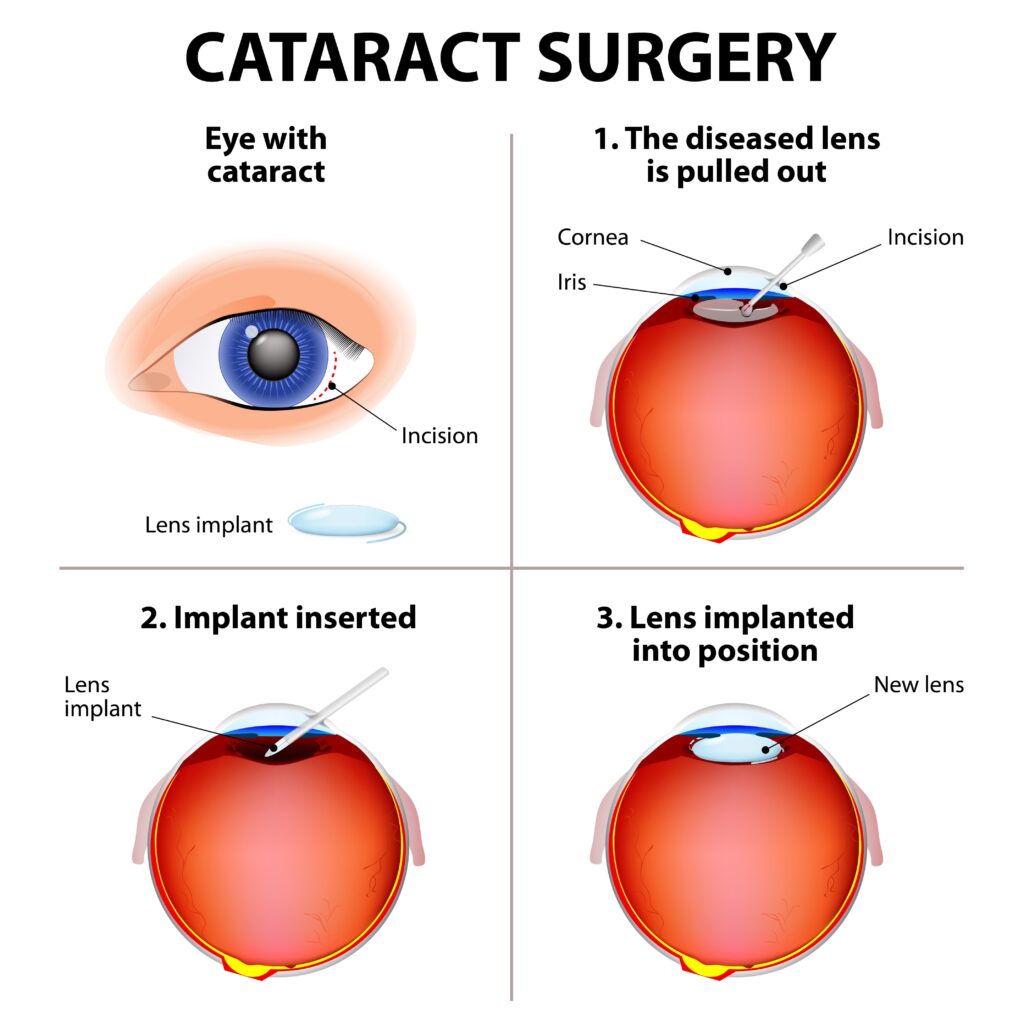What is cataract?
Cataract refers to clouding of the lens of the eye. It is usually an age-related process and can lead to diminution of the vision and sometimes glare. The latter may cause difficulty driving at night.
Can updating my glasses help with cataract?
Cataract often causes a change in the spectacle prescription in the eye. In some cases, the vision may be improved by updating the glasses but this may only help for a short period – as the cataract progresses the spectacle prescription may change again. Depending on the degree of visual impairment, it may be appropriate to consider cataract surgery.
What does cataract surgery involve?
The surgery is performed by making tiny incisions in front of the eye to access the cataract. The cataract is covered by a capsule and a round opening is made in the front of the capsule to access the cataract. The cataract is then broken into fragments and these are removed from the eye using an ultrasonic probe. Residual lens material attached to the capsule is then removed with suction instrumentation. An artificial folded lens is then introduced into the capsule, which then unfolds into position.

Does cataract surgery involve a general anaesthetic?
Whilst it is possible to undergo surgery under general anaesthetic, the vast majority of patients are suitable to have procedure performed under local anaesthetic. This involves either a combination of numbing eye drops with a small amount of further anaesthetic introduced into front of the eye or introduced under the superficial layers of the eyeball (conjunctiva and tenon’s layer).
How do I stop myself blinking during the surgery?
An eye speculum is gently inserted under the lids after instilling anaesthetic drops. This keeps the eyelids in the correct position during the procedure so there is no need to worry about blinking.
What happens after the surgery?
You will be able to go home after a short period back on the ward. You will be issued with antibiotic and anti-inflammatory eye drops to take for a period after your surgery.
How long will it take for my vision to improve after surgery?
This will vary from patient to patient depending on several factors e.g. the type of anaesthetic, the density of the cataract, the health of cornea (clear window at the front of the eye). In general, visual recovery takes between 2 days to 2 weeks. However, to ensure that the new prescription of the eye has stabilized, you should wait at least 6 weeks before visiting your optician to have your new prescription.
